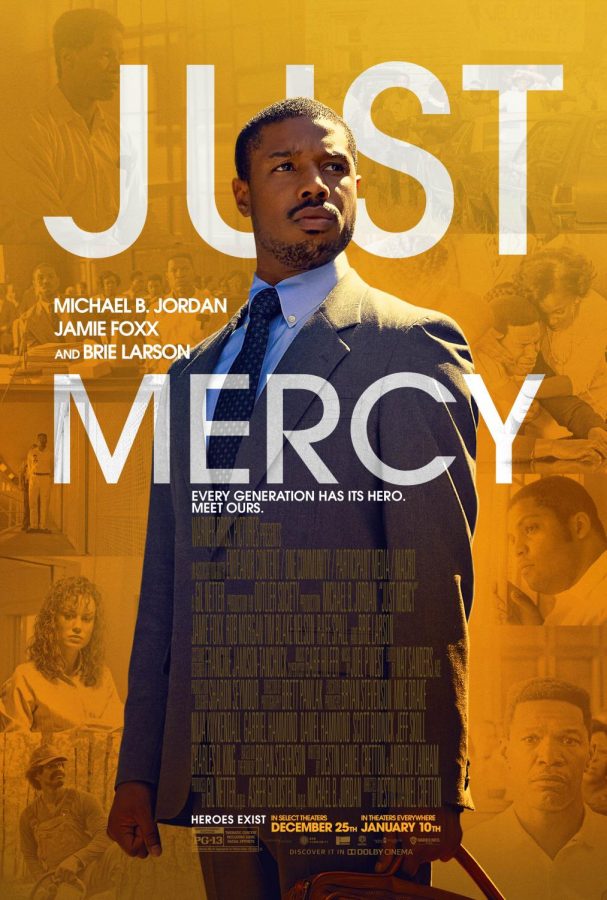Justice for All: A Movie Review of Just Mercy
January 23, 2020
In the cinematic age of superheroes and reboots, it warms the heart when an movie appears that reveals a story of justice, kindness, and overcoming social adversity.
Just Mercy is based off of a true story set in Alabama in 1987. A young African American man, Bryan Stevenson, had recently graduated from Harvard law school when he moved to Alabama. His goal was to help innocent people be released from death row and prison and help release all persons from death row, innocent or guilty. Mr. Stevenson would help low-income families at no charge because everyone deserves justice. Mr. Stevenson believed that: “The death penalty is not about whether people deserve to die for the crimes they commit. The real question of capital punishment in this country is, Do we deserve to kill?” Mr. Stevenson fought for people no matter how long they had been on death row because he believed that: “It’s never too late for justice.” Mr. Stevenson’s main case was about an African American man, Walter McMillan, who was framed by the police for the murder of an 18-year-old Caucasian female. Everyone believed that he was guilty because of Mr. McMillan’s race.
I enjoyed watching the challenges Mr. Stevenson faced. Almost everyone he came across would ask: What can you do that no one else has tried or what makes you think you are different from everyone else that has tried to help? That did not scare Mr. Stevenson because he knew that the ethical way will not come easy. I also enjoyed that, although it was mostly based off of African American inequality, Mr. Stevenson fought for all races. The movie incorporated and addressed the death penalty and inequality really well and how it is inhumane.
Seeing this movie is like looking from the perspective of people who were treated unequally and seeing that it was the truth. The message of the movie is a powerful one: no matter what some has done, they do not deserve to have their life taken away. The movie also showed that being treated unequally is unethical. Mr. Stevenson fought for all people, no matter how difficult it was, in Alabama in the 1980s. I left the theater wanting to do the same.
